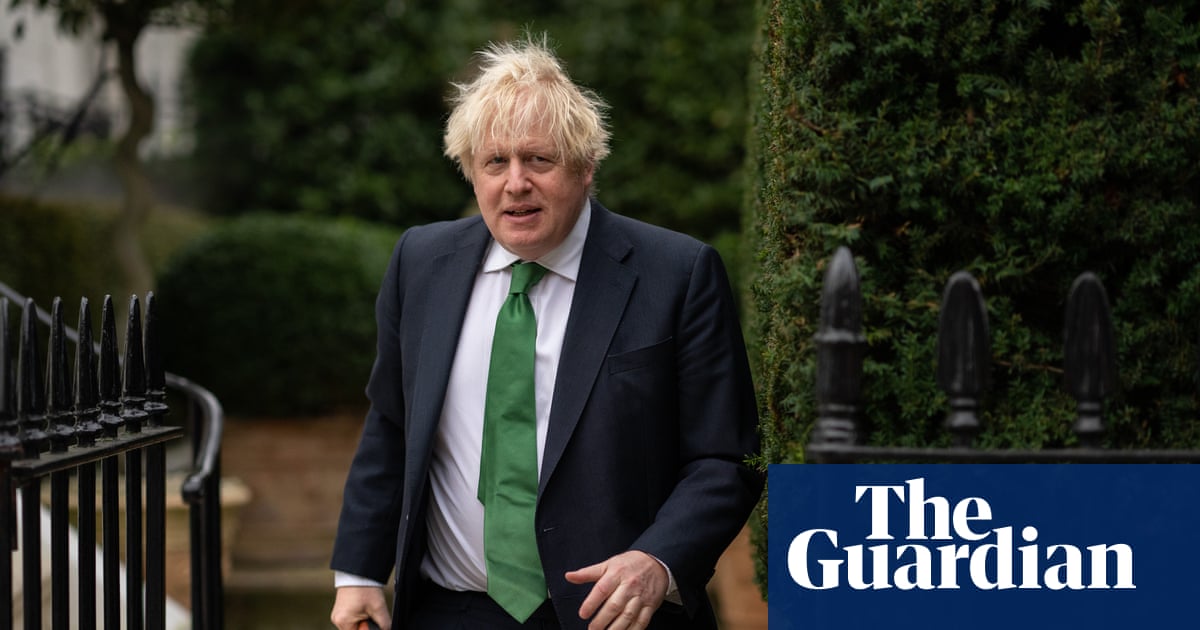
Rishi Sunak is facing pressure to use his spring statement this month to launch an emergency support package in response to the war in Ukraine, with measures to boost humanitarian aid and help for UK households with soaring energy bills.
Urging the chancellor to announce a comprehensive set of measures at the mini-budget due on 23 March, the heads of the TUC and Britain’s biggest trade unions said financial assistance was vital to cushion the impact from Russia’s invasion.
In a letter to Sunak seen by the Guardian, the union leaders said a step-change in financial support was required for the people of Ukraine as well as for UK families struggling with a cost of living crisis as the conflict drives up energy prices.
The wholesale cost of gas broke records on Friday, with the UK benchmark rising to 480p per therm, while petrol hit a new high at the pump of 153p per litre.
Frances O’Grady, the general secretary of the TUC, said: “Working people in the UK will need protection from even steeper hikes in gas bills from the conflict. The chancellor should introduce grants to help with energy prices, roll out an emergency programme of home insulation, and fund it with a windfall tax on excess energy profits.”
The intervention comes as analysts warn the conflict in Ukraine could add to the highest rates of inflation for three decades, should a sustained rise in oil and gas prices feed through to household bills.
Poverty campaigners have called on the government to increase the value of universal credit benefits by more than the 3.1% planned for April to prevent a sharp increase in hardship, alongside demands to overhaul the package of energy support announced last month.
Inflation reached 5.5% in January, the highest level since the early 1990s, while economists have warned the rate of increase for the cost of living could hit 8% this year after Vladimir Putin ordered troops into Ukraine, sparking an energy crisis.
The independent Joseph Rowntree Foundation estimates the planned real-terms cut to benefits in April could pull 400,000 people into poverty, at a time when the UK’s main out-of-work support is already at a 30-year low after a decade of cuts and less than six months on from the £20 a week cut to universal credit.
In their letter to the chancellor, the union bosses from the TUC, Unite, Unison, GMB, teachers’ unions and other leading groups said more needed to be done to protect working families from further energy price rises as a result of the crisis.
It said more generous grants could be offered instead of a £200 repayable loan, universal credit could be increased by more than is planned, while the value of the warm homes discount for the poorest families could be increased and more funds made available to people wanting to insulate their properties.
Against a backdrop of surging energy prices, the unions said a new 100% tax on “additional profits” made by UK based companies from their shareholdings in Russian state-backed enterprises that have profited from the gas price crisis could be launched to help fund its recommended measures.
It said this would include profits made by firms like Shell and Vitol from their shareholdings in oil and gas fields in Russia in joint ventures with Kremlin-backed companies Rosneft and Gazprom. Several western energy giants, including Shell and BP, have announced plans to divest multibillion-pound stakes in Russian projects since the outbreak of the conflict in Ukraine.
Urging the government to pursue all diplomatic efforts towards peace, the trade union leaders said safe routes to the UK were needed for those fleeing conflict and that changes to government legislation that would close the door on people fleeing war and threats to their lives needed to be scrapped. They said funding for humanitarian assistance for displaced people, including essential medical supplies, were also vital.
A government spokesperson said: “We recognise the pressures people are facing with the cost of living, and are providing support worth around £20bn this financial year and next to help.
“This includes a £200 reduction on bills this autumn and a £150 non-repayable reduction in council tax bills, on top of the existing £12bn of support we have in place already. The energy price cap also continues to insulate millions of customers from volatile global gas prices.
“We are also putting an average of £1,000 more per year into the pockets of working families via changes to universal credit and boosting the minimum wage by more than £1,000 a year for full-time workers.”












